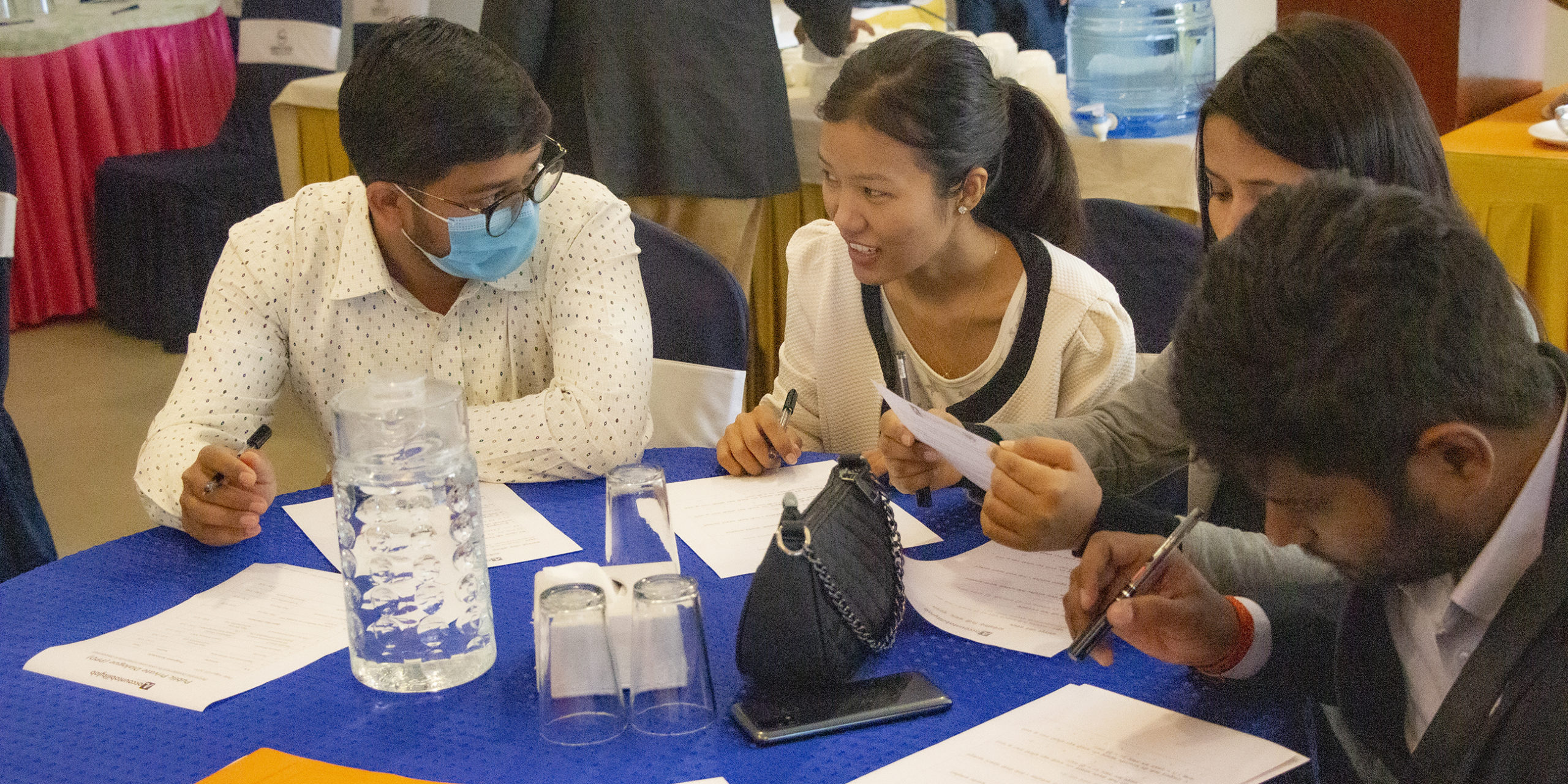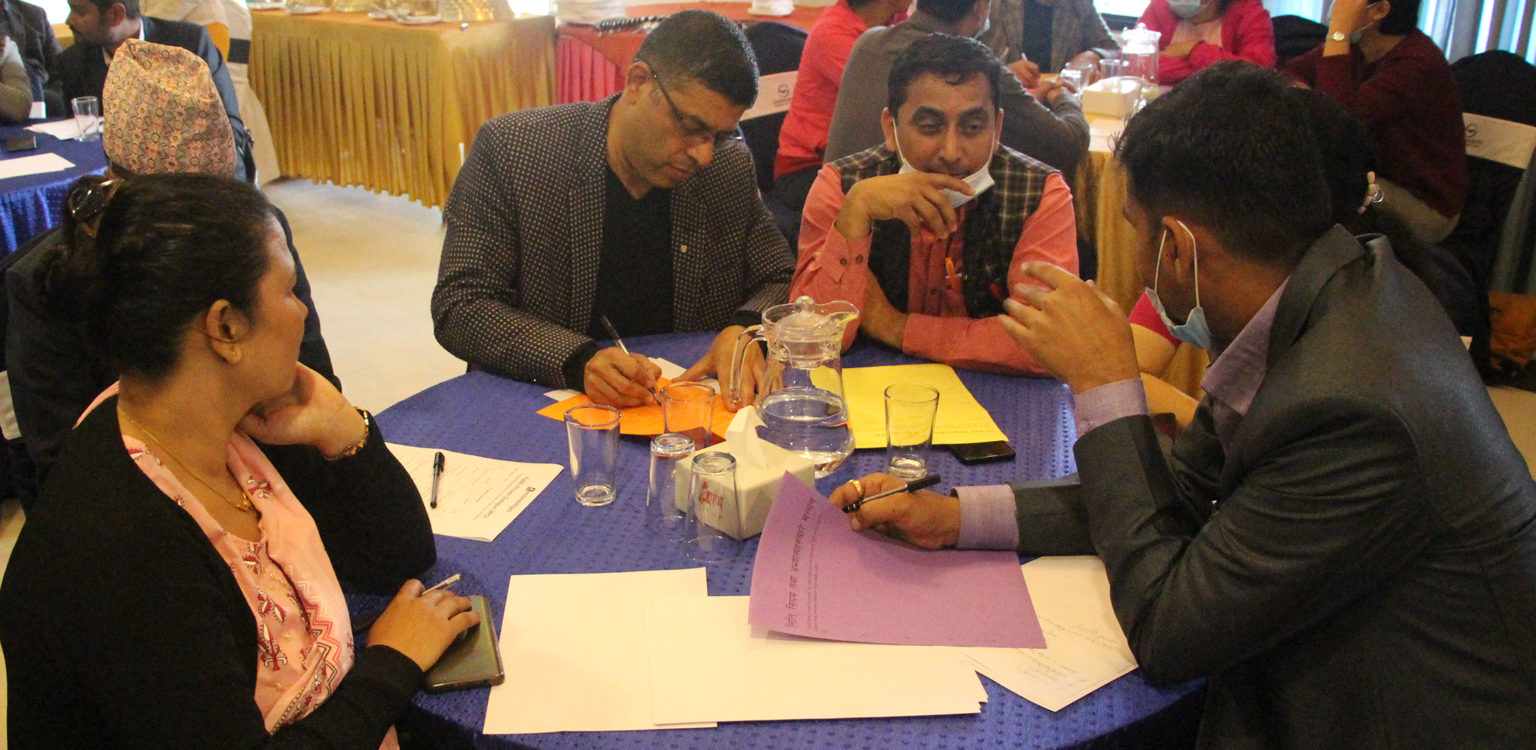
Broadening the avenues of private sector participation in local infrastructure development
Written by: Raju Sharma
Participation of the private sector in local level development has received renewed attention in Nepal, especially after Nepal’s move towards federalizing its form of governance and the promulgation of the 2015 Constitution of Nepal – and the subsequent 2017 election of 753 local government officials. Most of the local governments in Nepal can hardly fund their regular expenses, let alone their development priorities, as local governments have a minimal revenue base compared to their expenditure assignments. Some local governments from major industrial hubs have risen 40% to 62% of their annual budget from internal sources, while the corresponding figures for other local governments in rural areas are as low as 0.7%.[1] In such situations, local governments have resorted to partnering with relevant private sectors to fund their infrastructure development priorities. Therefore, the success of the local governance system in Nepal largely depends upon the management of successful partnerships with the private sector.
Butwal Sub-Metropolitan city is one of the few local governments in Nepal which has taken the initiative to create legal frameworks to facilitate private sector participation in local development. Despite some reservations, the private sector and citizens are generally optimistic about local government initiatives. It is an opportunity to ignite discussions to ensure the creation of a partnership and a mind-bridge between the public and private sectors in Butwal. As part of an effort by Accountability Lab to “fame-the-positives” in Public-Private Partnership rather than “shame-the-negatives”, we wanted to highlight the positives regarding the partnership between the local government and the private sector in Butwal. Many rounds of informal meetings with private sector representatives, business associations, journalists, local government officials, civil society members, and academicians provided us with a broad view of the existing context and the contemporary issues of Public-Private Partnership. We were very cautious not to present ourselves as experts on the technical aspects of Public-Private Partnership but as practitioners and students on the subject which enabled us to ask more questions than provide solutions upfront. Conducting numerous informal meetings boosted our confidence to organize and facilitate a Public-Private Dialogue program on February 19 2021. We invited all representatives from the private sectors and Butwal Sub-Metropolitan city to discuss possible ways to engage private sector participation in local development. The program was attended by more than 65 participants from all quarters – local government officials, entrepreneurs, business leaders, watchdogs, journalists, politicians, and beneficiaries of existing PPP projects.
Generating ownership among local lead Organizations
 Our efforts to bring together the public and private sector into one forum were greatly aided by local organizations’ enthusiasm, such as the Nepalese Young Entrepreneurs Forum (NYEF) and Sutra Solution Pvt Ltd. These organizations are led by young people, who are more receptive to the importance of partnering with local governments to create infrastructures. Such organizations will increase the competitive edge of Butwal city in being a hub of innovation and enterprise. Young entrepreneurs from these organizations expressed their concern regarding limited business hours for restaurant owners in Butwal and the lack of information regarding efforts of local governments to facilitate businesses. A young entrepreneur spoke of the need to digitize information related to the industry by the local government.
Our efforts to bring together the public and private sector into one forum were greatly aided by local organizations’ enthusiasm, such as the Nepalese Young Entrepreneurs Forum (NYEF) and Sutra Solution Pvt Ltd. These organizations are led by young people, who are more receptive to the importance of partnering with local governments to create infrastructures. Such organizations will increase the competitive edge of Butwal city in being a hub of innovation and enterprise. Young entrepreneurs from these organizations expressed their concern regarding limited business hours for restaurant owners in Butwal and the lack of information regarding efforts of local governments to facilitate businesses. A young entrepreneur spoke of the need to digitize information related to the industry by the local government.
PPP, essentially, is a trust-building exercise
One of the most crucial takeaways from the informal meetings and the Public-Private Dialogue program was that the Butwal local government needs to invest in mechanisms that create trust with different divisions of private sectors. Private sectors are represented through diverse sets of business associations in Butwal. Some of the quarters of the private sectors have not been reached with information regarding the efforts of Butwal Sub metropolitan city for PPP. Organizing a Multi-Stakeholder Platform (MSP) to inform all divisions of the private sector will create an environment of trust between the public and the private sectors. The existing practice of selecting projects through a committee formed by the Mayor may not be encompassing enough to support the participation of broad private sector divisions. One of the Public-Private Dialogue program participants suggested that “since it is clear that PPP provides much-needed sources of finance for infrastructure development to the sub-metropolitan city, it is important that identified projects are considered important by all sectors of the private sector as well”.
Broadening avenues for Consultation and Dissemination of Information
Engaging broader sections of associations of business leaders in the initial phase of identifying relevant local infrastructure for PPP will help generate commitments from the private sector to also partner in the later phase of building the infrastructure. It is imperative for the public sector to create a Multi-Stakeholder Platform to include views of the private sector. Business association leaders identified the need to engage their members in prioritizing probable infrastructures of their concern. Furthermore, representatives from business associations emphasized the need to conduct discussions among the private sector to collectively propose suitable local infrastructure projects. The private sector should use the provision of ‘unsolicited proposals’ which allows the private sector to propose relevant infrastructure projects financed through PPP.

Pioneering new mechanism of executing PPP projects
Butwal sub-metropolitan city has already piloted a model where partnership agreements are entered into with specific private entrepreneurs associations. For example, the sub-metropolitan city has a partnership with associations of Transport entrepreneurs to construct a parking facility in which these transport entrepreneurs will operate. Likewise, the sub-metropolitan city also intends to implement PPP projects in partnership with a community forests group and associations of butcheries to create an entertainment facility and meat processing facility. This partnership model departs from existing PPP practices, and it would be interesting to report any learning of this partnership model.
Beneficiary and Citizens as the missing link in the discussions
Representatives from civil society and beneficiary groups emphasized the importance of holding consultations regarding infrastructure projects with local people and beneficiaries before starting the partnership. In most PPP projects or any development projects, beneficiary concerns remain the missing link that cannot be forgotten.





